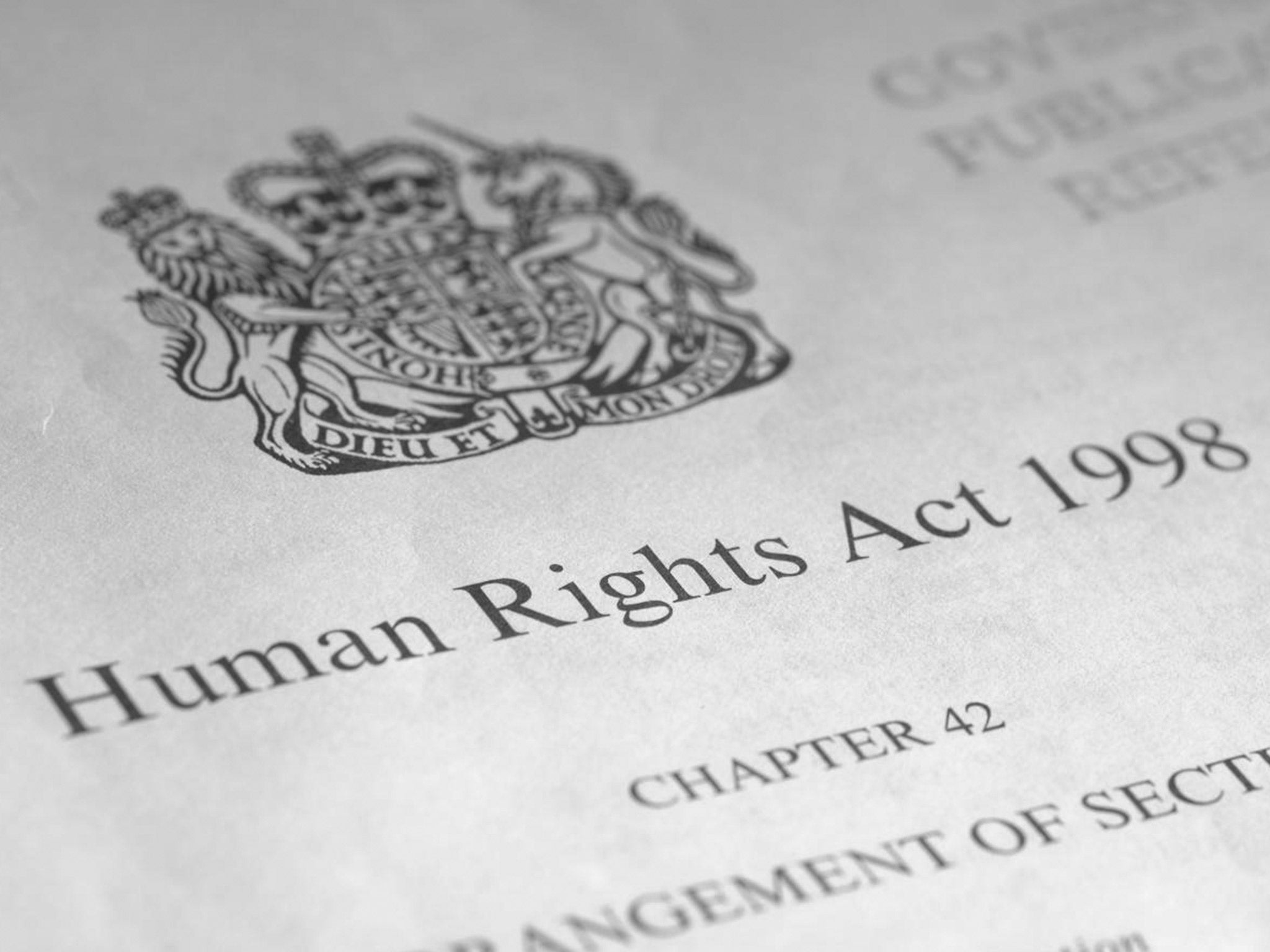At its best, the Government's plan to scrap the Human Rights Act is empty pandering to xenophobia
The HRA was a beautifully simple and vital piece of legislation


Your support helps us to tell the story
From reproductive rights to climate change to Big Tech, The Independent is on the ground when the story is developing. Whether it's investigating the financials of Elon Musk's pro-Trump PAC or producing our latest documentary, 'The A Word', which shines a light on the American women fighting for reproductive rights, we know how important it is to parse out the facts from the messaging.
At such a critical moment in US history, we need reporters on the ground. Your donation allows us to keep sending journalists to speak to both sides of the story.
The Independent is trusted by Americans across the entire political spectrum. And unlike many other quality news outlets, we choose not to lock Americans out of our reporting and analysis with paywalls. We believe quality journalism should be available to everyone, paid for by those who can afford it.
Your support makes all the difference.In 1998 a young and popular government enshrined the European Convention on Human Rights in law with cross-party support. The Human Rights Act was a beautifully simple piece of legislation that has repeatedly let ordinary people – soldiers, journalists, bereaved families, victims of domestic violence, slavery and rape – hold the state to account.
Our new Government wants to scrap the HRA. Its so-called “British Bill of Rights and Responsibilities” is an incredibly dangerous confidence trick. The omission of “human” and addition of “British” suggests this isn’t about “injecting common sense”. At best, it’s empty pandering to xenophobia.
It undermines the universality of human rights, which earlier generations paid for with their lives, and allows any government to pick when they apply, and to whom.
Chris Grayling’s incoherent strategy paper, presented last October, is all the detail we’ve seen so far. Littered with legal howlers, it was roundly panned. But, leaving aside inaccuracies and inanities, let’s look at what this Bill would actually do.
The pledge to stop those who pose a national security risk or have entered the UK illegally from relying on “questionable human rights claims” is a headline-grabber. But this would turn us into a country happy to deliver other humans – however detestable – into the hands of torturers. One that would ignore innocent British children’s rights when considering deporting their parents. A country to be proud of?
The Bill will also limit the use of human rights laws to the “most serious cases”, with “trivial cases” excluded. Rosa Parks refuses to go to the back of the bus; your dying mum waits hours to be helped to the toilet in her care home. Should politicians decide what is a “trivial case”? I think not.
The obvious and menacing conclusion is this: if the Council of Europe doesn’t agree the Bill is a legitimate way of applying the Convention, the Government will pull out of that too. Churchill’s post-war legacy, drafted by great Conservative legal minds, tossed to the wind.
Repercussions for our shakily united kingdom will be seismic, as the HRA underpins the Good Friday Agreement and the Scotland Act. But the aftershocks will be global; despots in eastern Europe and beyond must be rubbing their hands in glee. If the UK doesn’t care about fundamental rights, why should they?
Human rights are for everyone and must be protected with the law at home and abroad. Because what politics gives, it can also take away.
Perhaps the Government thinks spin about foreign criminals and Bolivian cats has paid off and expects an easy ride from the public. But this is our Human Rights Act. We know what’s at stake and we’re not giving it up without one hell of a fight.
Shami Chakrabarti is director of the human rights campaign group Liberty
Join our commenting forum
Join thought-provoking conversations, follow other Independent readers and see their replies
Comments